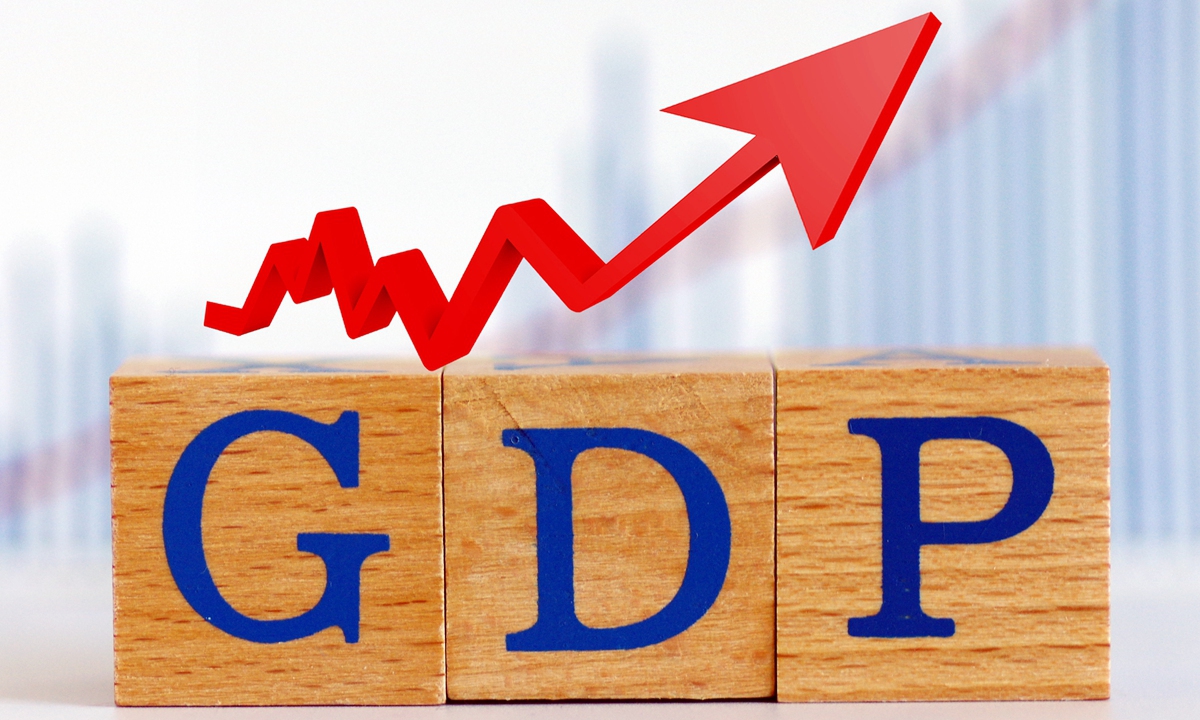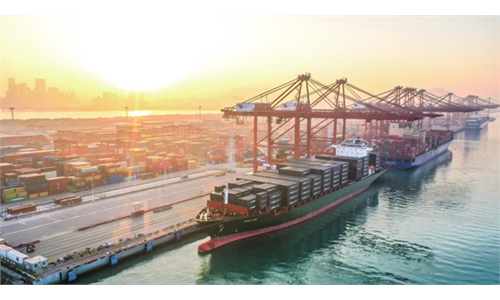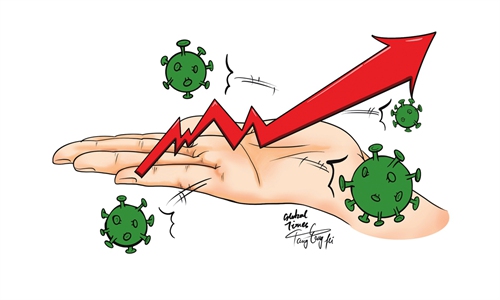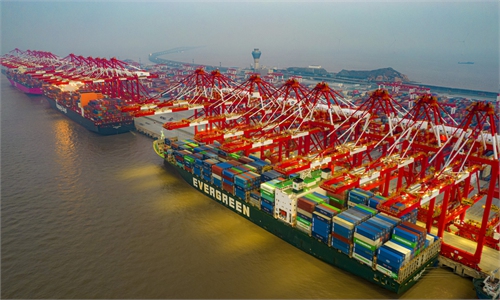
GDP Photo: VCG
As China is trying to contain a voracious COVID-19 outbreak in two years, the country has also been on the end of a new wave of Western voices attacking China's dynamic zero-COVID policy, and minimizing China's economy.
Morgan Stanley cut its economic growth forecast for China to zero for the first quarter of this year from the fourth quarter of last year, and predicts China will miss its annual GDP target of 5.5 percent this year due to its adherence to a zero-COVID policy, Bloomberg reported on Tuesday.
At first glance, it is both alarming to see a Wall Street investment bank make a zero-growth forecast for the Chinese economy. But a closer look shows that it is nothing but a misleading numbers game some may play to give the impression that the Chinese economy is slowing significantly.
Anyone who have some basic knowledge about China's macro economy knows that, because of the Chinese New Year factor, China's first-quarter GDP is usually lower than the other three quarters. So it is common to see the first-quarter GDP stay at a similar level with that of the last quarter the previous year. For instance, China's GDP in the first quarter of 2019 rose 6.4 percent year-on-year, unchanged from the fourth quarter of 2018.
Of course, one should not be surprised by the Western media's emphasis on the zero-growth forecast, which is identical to the "China collapse theory" they propagated in the past. For decades, Chinese people are getting used to Western pessimistic predictions and ill will toward China, as Chinese economy moves steadily forward, reaching $18 trillion in 2021. If their predictions were half as reliable, China would have collapsed several times.
Strangely, the "China collapse theory" has not deterred Western companies from investing in China. Two-thirds of the companies rank China as the top or a top-three priority for making near-term investment, according to an annual survey released by the American Chamber of Commerce in China recently.
There is no denying that there will be more pressure facing China's economic growth in 2022. For starters, the fast-spreading Omicron variant has caused a new wave of epidemic resurgence in many provinces and municipalities. Although China's overall economic activity remains normal, the impact of strict anti-virus prevention measures on the economy cannot be overlooked.
Second, pockets of debt throughout the real estate sector are considered as a major source of risks to the economy. Third, despite booming exports and industrial production, domestic consumption has remained weak due to the epidemic impact.
In addition, the Russia-Ukraine conflict will likely be a significant drag on the European economy, which may possibly bring some shocks to China's economy. While these factors don't bode well for economic growth, the risks are actually manageable.
Over the past few years, China has rolled out proactive fiscal and monetary policy, new infrastructure plans, dual circulation, low-carbon development, and other policies to inject new growth momentum into the economy whenever an adjustment or support is needed.
There is every reason to believe that China will continue to formulate various policies to strike a balance among stable growth, structural adjustment and risk prevention.
And from the perspective of both fiscal and monetary policies, China still has enough tools in its toolbox. According to the annual government work report delivered at the two sessions, China's deficit-to-GDP ratio this year will be around 2.8 percent, slightly lower compared with the previous year.
Compared with the US and other Western economies, China did not flood domestic financial markets with liquidity over the past two years, leaving it ample room for monetary policy adjustment in terms of reserve require ratio, interest rate, and medium-term lending facility (MLF). All these mean that China's ability to stabilize its economy will be stronger than Western naysayers would expect.
2022 is a very important year for China. Any estimate or forecast of China's economy must take into account the significance of 2022 in China's development history.



